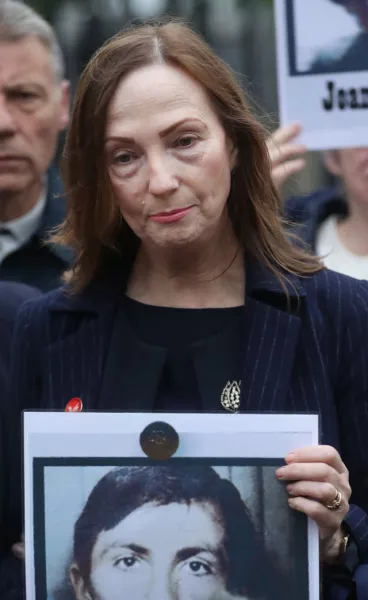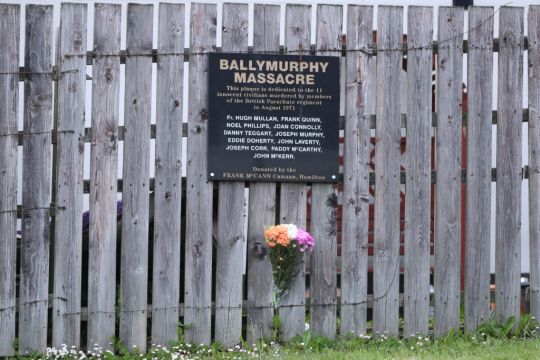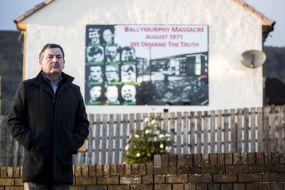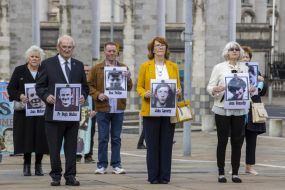Families of people shot dead by British soldiers at Ballymurphy 50 years ago have called on the Government to intervene in any attempt to prevent prosecutions of veterans by the British Government.
Family members said they would take legal action against any plans to block the prosecution of former British soldiers.
Carmel Quinn, whose brother John Laverty was shot dead in the incident in west Belfast, appeared before the Good Friday Agreement Committee in Dublin on Tuesday.

She said UK Prime Minister Boris Johnson needs to be told “firmly” that there should be no amnesty for soldiers who allegedly committed crimes during the Northern Ireland Troubles.
Earlier this month, Mr Johnson issued a formal apology to the families of the Ballymurphy victims, after a coroner found that the 10 people who died in August 1971 were “entirely innocent”.
The Army was found to be responsible for nine of the deaths, which included a mother-of-eight and a Catholic priest.
Fine Gael senator Emer Currie said families should have access to an effective investigation and process of justice for every Troubles-related death.
“I am utterly against any unilateral action that changes the Stormont House Agreement which is a collective framework to deal with legacy,” Ms Currie told the committee.
“If unilateral action is taken what does that mean for obligations under the European Convention on Human Rights (ECHR), which is a key element of the Good Friday Agreement, and what does it mean for international human rights?”
Padraig O Muirigh, solicitor for the Ballymurphy families, said any move to provide amnesty for British soldiers is a breach of the ECHR.

“These families will challenge any such move by the British Government, in the domestic courts or the European courts if they need to,” he added.
Ms Quinn said the inquest process was often distressing for the families.
“It was the attitude of some of the soldiers who were asked about things but said they couldn’t remember. That was right down the line,” she added.
“There are other families who haven’t had any kind of recognition, their loved ones were murdered one day and then nothing happened.
“The Stormont House Agreement is there, the mechanisms are there, but people can’t move on and they are stuck in the past because there has never been any accountability for what happened.
“There was a letter sent to Irish Government from people from all walks who lost someone in the conflict but that still needs some kind of accountability.
“That needs to be addressed. The Stormont House Agreement needs to be implemented and the Prime Minister needs to be told firmly there is no amnesty on the table for soldiers.”
John Teggart, whose father Danny was shot by a soldier in August 1971, said that if a proper investigation had been carried out at the time of the deaths, it would have saved other lives.








